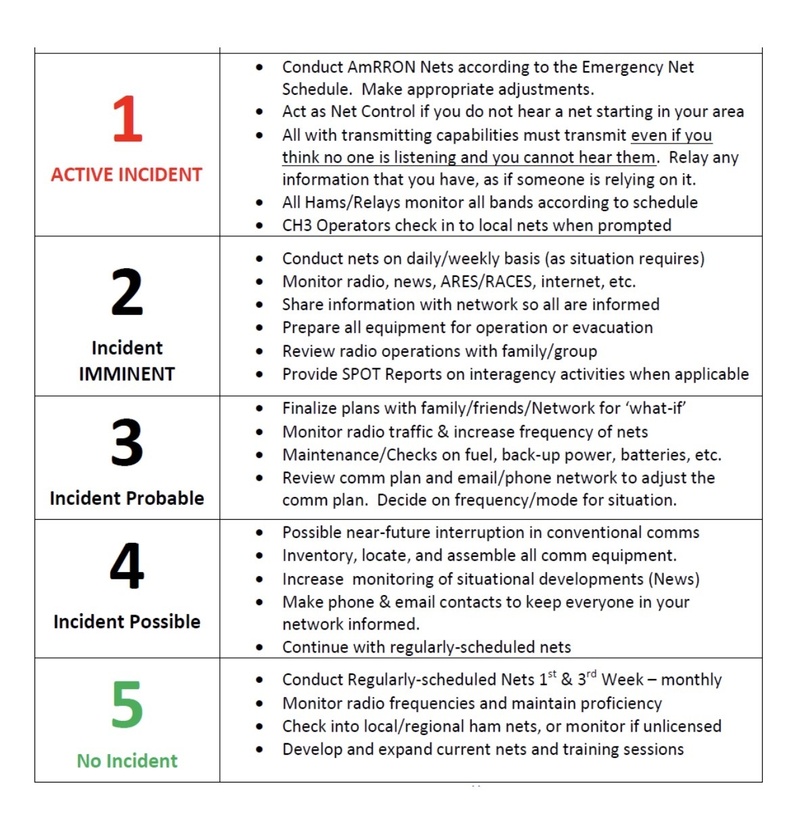
We know what’s coming and we are prepared.
🇺🇸🇨🇳🇮🇷 Excerpts from the 2024 US Intelligence Community's US Annual Threat Assessment report:
China has the capability to directly compete with the United States and U.S. allies and to alter the rules-based global order in ways that support Beijing’s power and form of governance over that of the United States. China’s serious demographic and economic challenges may make it an even more aggressive and unpredictable global actor.
Local and regional powers are also trying to gain and exert influence, often at the cost of neighbors and the world order itself. Iran will remain a regional menace with broader malign influence activities, and North Korea will expand its WMD capabilities while being a disruptive player on the regional and world stages.
President Xi Jinping envisions China as the preeminent power in East Asia and as a leading power on the world stage. The Chinese Communist Party (CCP) will attempt to preempt challenges to its reputation and legitimacy, undercutting U.S. influence, driving wedges between Washington and its partners, and fostering global norms that favor its authoritarian system. Most significantly, the People’s Republic of China (PRC) will press Taiwan on unification, an effort that will create critical friction points with the United States.
China seeks to become a world S&T superpower and to use this technological superiority for economic, political, and military gain. China remains committed to becoming a world-class space leader and continues to demonstrate its growing
prowess by deploying increasingly capable space systems and working towards ambitious scientific feats.
Iran is not currently undertaking the key nuclear weapons-development activities necessary to produce a testable nuclear device. Since 2020, however, Tehran has stated that it is no longer constrained by any JCPOA limits, and Iran has greatly expanded its nuclear program, reduced IAEA monitoring, and undertaken activities that better position it to produce a nuclear device, if it chooses to do so.
There is a low risk of full-blown war between Armenia and Azerbaijan despite the lack of a bilateral peace treaty. The US Intelligence Community estimates that, if a conflict breaks out, it will be of a short duration and intensity.
The US Intelligence Community notes an increased risk of interethnic conflict in the Western Balkans in Kosovo and Bosnia blaming nationalist leaders using ethnic tensions for political gain which may negatively impact EU-NATO interests in the region.
Foreign states are advancing digital and physical means to repress individual critics and diaspora communities abroad, including in the United States, to limit their influence over domestic publics. States are also growing more sophisticated in digital influence operations that try to affect foreign publics’ views, sway voters’ perspectives, shift policies, and create social and political upheaval.
📎 DNI Annual Assessment
https://www.dni.gov/files/ODNI/documents/assessments/ATA-2024-Unclassified-Report.pdf
This guy wrote a 25 line Python script he claims "can probably unredact all of the Epstein files in less than 30 seconds".
"I am not suicidal, I am a great swimmer, and I look forward to living my life well into my 80s."
Follow @RealWideAwakeMedia for more content like this!
Merch: https://wideawake.clothing
X | YT | IG | Rumble
US / Iranian Conflict
Raising to AmCON 3 (Incident Probable)
Due to the following: deteriorating negotiations between the United States and Iran; the surge in the past 48 hours of “final stage” US military assets into the Middle East; vacating US personnel from bases in Syria; the “Fatwa” issued last summer by Iranian clerics in the Summer of 2025 calling Muslims around the world to rise up if Iran is attacked; the numerous reports of Iranians who have infiltrated the US southern border in recent years and the warnings of “sleeper cells” in the United States, AmRRON is raising the AmCON one level, to Level 3 (Incident Probable).
AmRRON Special Guidance and Instructions:
AmRRON will remain at AmCON 3 until further notice, and we will continuously be monitoring the situation. Additional changes to the AmCON level, and any special instructions or guidance, will be posted here, as well as through the AmRRON member Telegram Channel, the AmRRON Corps Z-Net, and the AmRRON Mobile Team App....

If you’re a parent, this should make your stomach drop!
Every year, millions of families across America proudly display school photos of their children.
On refrigerators. In picture frames. Sent to grandparents and relatives across the country.
But here’s what most parents are never told…
Those school photos are taken by Lifetouch — the largest school photography company in America.
Lifetouch is owned by Shutterfly.
Shutterfly was acquired by Apollo Global Management.
And Apollo Global Management was co-founded by Leon Black — a name that appears in the Epstein files.
That means millions of children’s images are uploaded into databases every single year by a corporate structure tied to someone connected to Epstein.
Let that sink in!
https://vxtwitter.com/i/status/2019500982997041332


















